Publications
Articles, publications, books, tools and multimedia features from the U.S. Institute of Peace provide the latest news, analysis, research findings, practitioner guides and reports, all related to the conflict zones and issues that are at the center of the Institute’s work to prevent and reduce violent conflict.
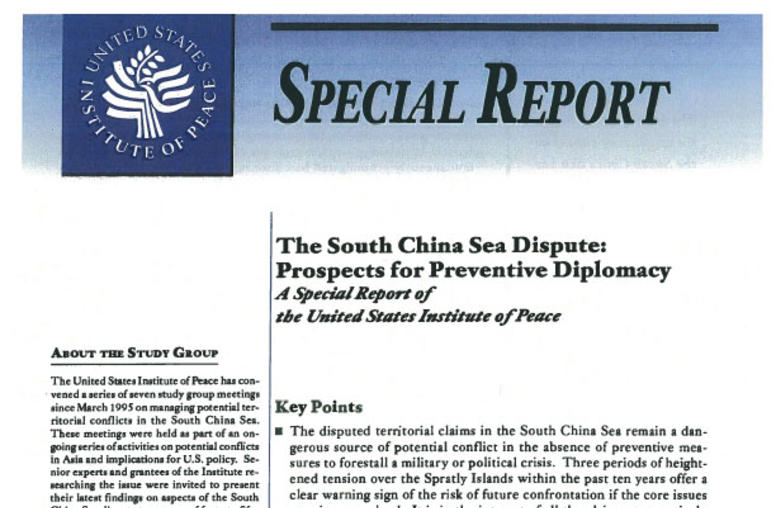
The South China Sea Dispute: Prospects for Preventive Diplomacy
The United States Institute of Peace has convened a series of seven study group meetings since March 1995 on managing potential territorial conflicts in the South China Sea. These meetings were held as part of an ongoing series of activities on potential conflicts in Asia and implications for U.S. policy. Senior experts and grantees of the Institute researching the issue were invited to present their latest findings on aspects of the South China Sea dispute to a group of forty to fifty specia...
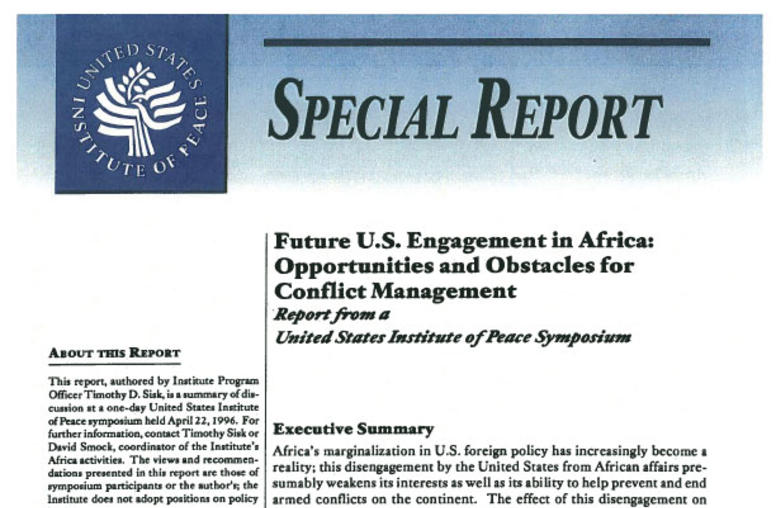
Future U.S. Engagement in Africa Opportunities and Obstacles for Conflict Management
Africa's marginalization in U.S. foreign policy has increasingly become a reality; this disengagement by the United States from African affairs presumably weakens its interests as well as its ability to help prevent and end armed conflicts on the continent.
Peace Operations and Common Sense: Replacing Rhetoric with Realism
The shortcomings of several recent peace operations have led many people to conclude that the whole concept is flawed and has little bearing on U.S. interests. The record, however, suggests that peace operations have not only reduced instability in many parts of the globe but have also been something of a minor boon to U.S. foreign policy.
Peace Operations and Common Sense
The shortcomings of several recent peace operations have led many people to conclude that the whole concept is flawed and has little bearing on U.S. interests. The record, however, suggests that peace operations have not only reduced instability in many parts of the globe but have also been something of a minor boon to U.S. foreign policy. It is necessary to confront this strange gulf between Washington perceptions and reality. Denis McLean, a New Zealander, is currently Warburg Professor ...
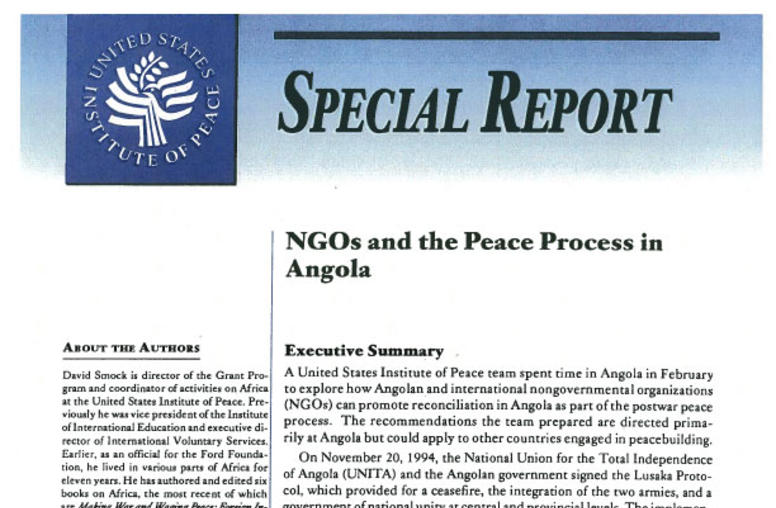
NGOs and the Peace Process in Angola
A United States Institute of Peace team spent time in Angola in February to explore how Angolan and international nongovernmental organizations (NGOs) can promote reconciliation in Angola as part of the postwar peace process. The recommendations the team prepared are directed primarily at Angola but could apply to other countries engaged in peacebuilding.
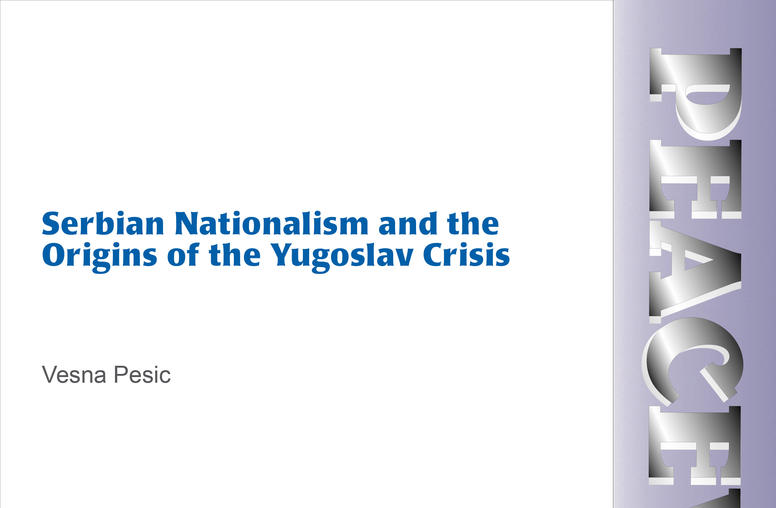
Serbian Nationalism and the Origins of the Yugoslav Crisis
The dissolution of multinational communist federations and the ensuing armed conflicts that have emerged with their transformation into independent nation-states have returned the "national question" (i.e., the relationship of a national or ethnic group to a state that includes multiple ethnic groups within its territory) to the forefront of debates over international politics, law, and theory.
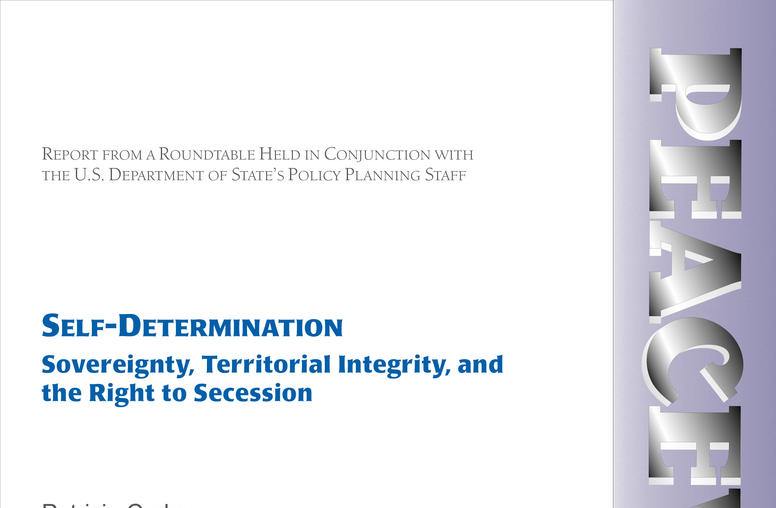
Self-Determination: Sovereignty, Territorial Integrity, and the Right to Secession
The right to self-determination has become one of the most complex issues for U.S. foreign policymakers and the international community at large.

NGOs and Conflict Management
The staff of the Institute has gone through the voluminous proceedings of the September 1995, "Managing Chaos" conference to distill the views expressed by nongovernmental organization (NGO) representatives and others on the emerging role of NGOs in managing international conflict.
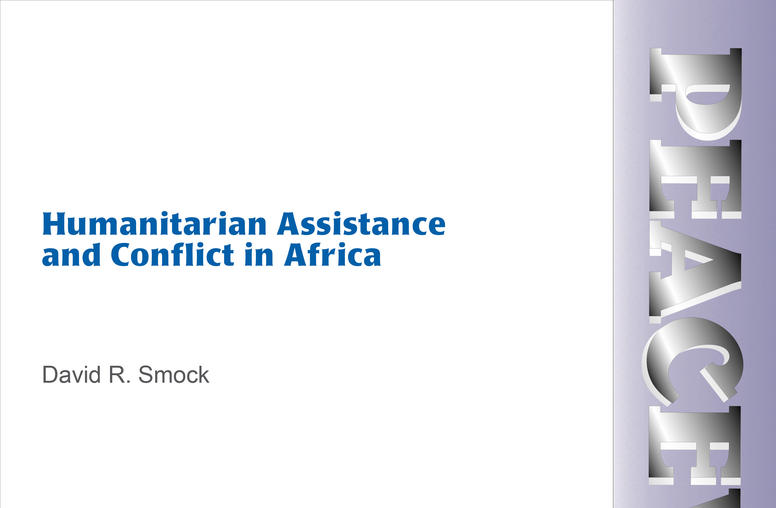
Humanitarian Assistance and Conflict in Africa
The good work of nongovernmental organizations (NGOs) in recent conflicts in such countries as Somalia, Haiti, and Bosnia is well known—providing food, shelter, medicine, and a host of other materials and services under extremely difficult conditions. But does humanitarian assistance in some cases actually exacerbate conflict?
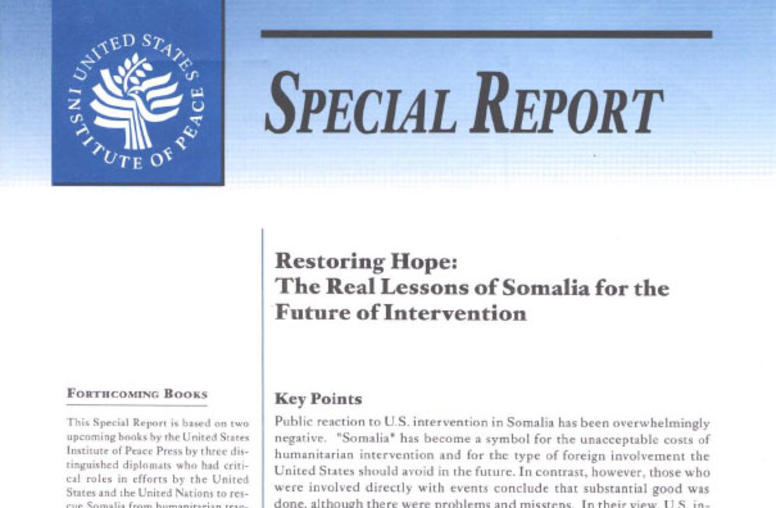
Restoring Hope: The Real Lessons of Somalia for the Future of Intervention
This Special Report distills the work of Sahnoun, Oakley, and Hirsch into an overview of the lessons of Somalia for the future of humanitarian and political intervention.